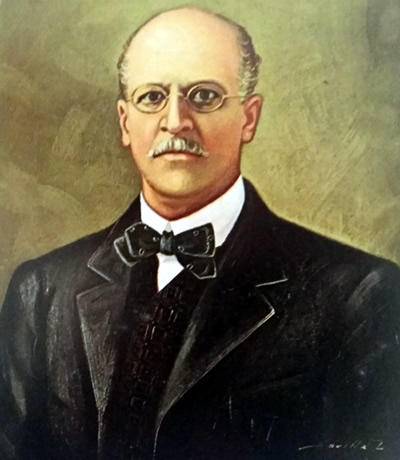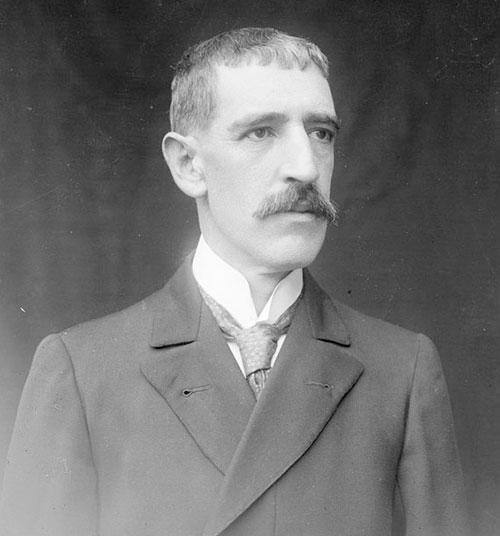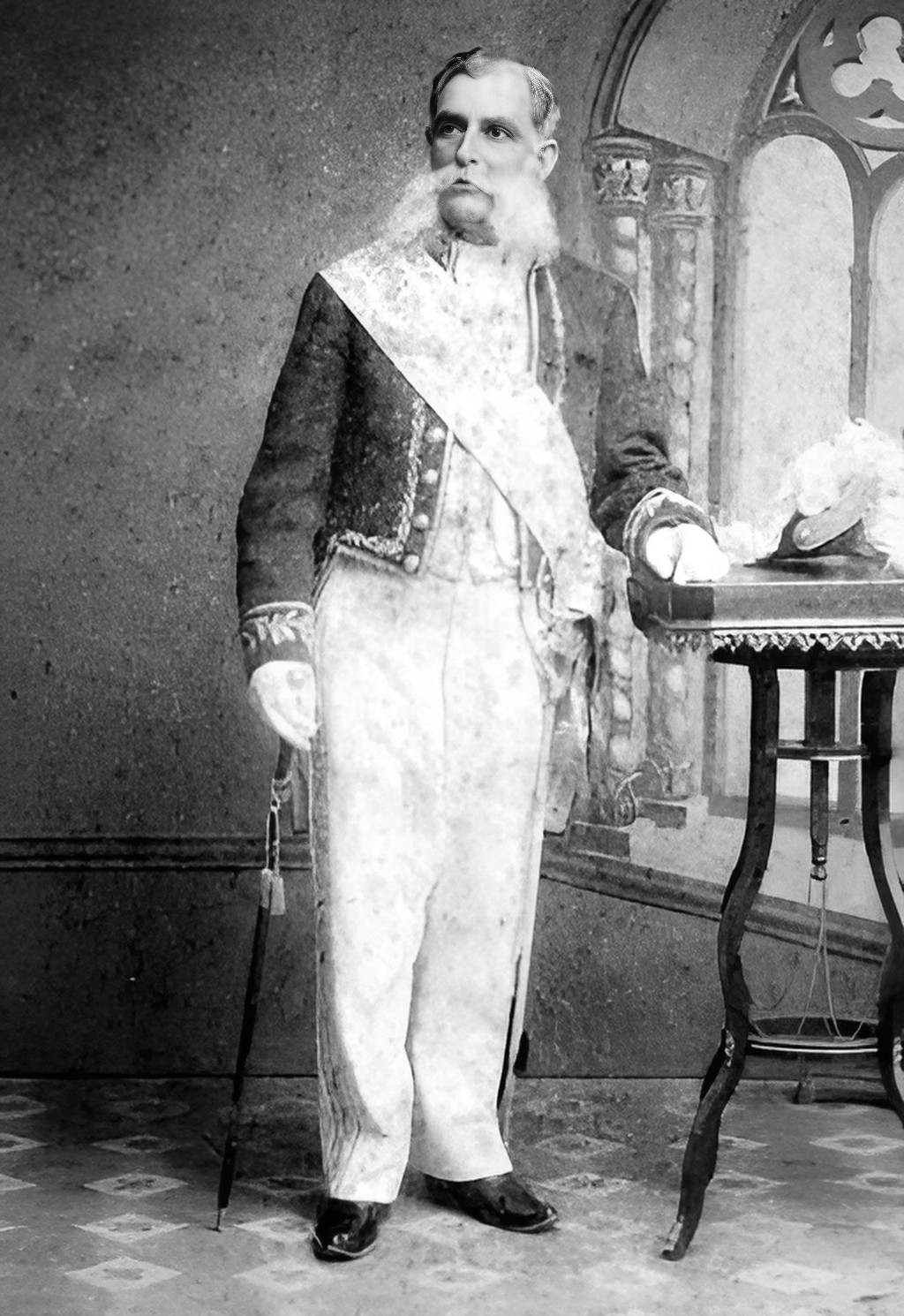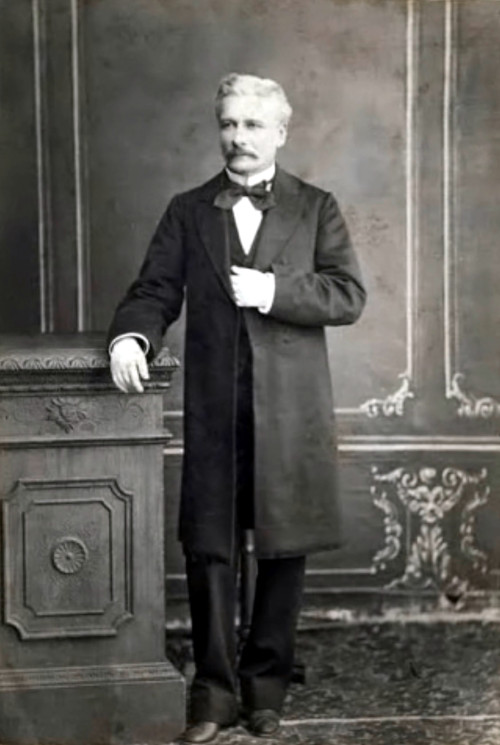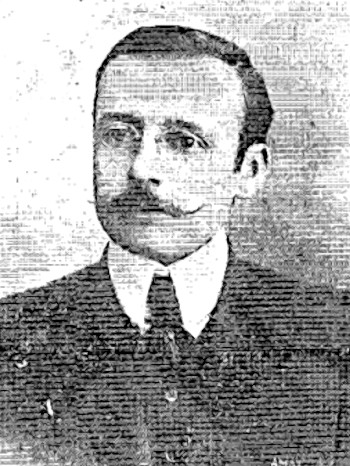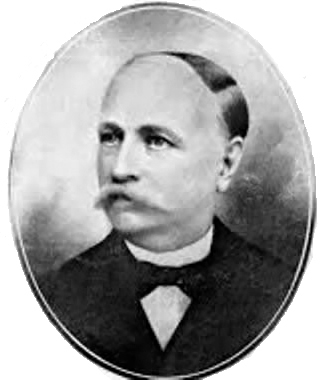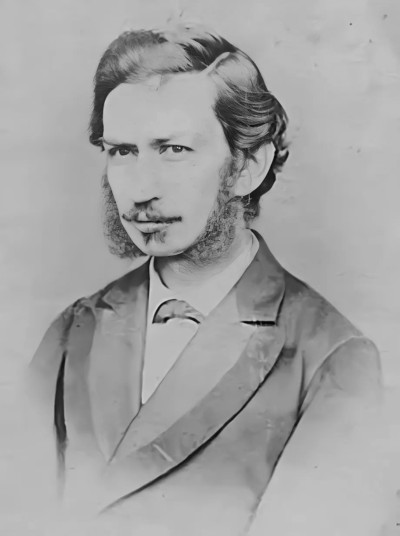César Borja Lavayen (Quito, February 6, 1851 – Guayaquil, January 31, 1910) was a writer, poet, translator, physician, politician and professor. He was educated at the National University of San Marcos in Lima, Peru. He served as the Deputy of the National Congress of Ecuador, and mayor of Guayaquil (1903-1904). He was a member of the Ecuadorian Academy of Language (since 1901) and in the latter part of his life was the rector of the Central University of Ecuador (since 1908). For political reasons, he lived various years in exile in Costa Rica. On his return to Ecuador, Borja was appointed to various important posts by President Eloy Alfaro.
Continue reading “César Borja Lavayen”Category: 19th Century Writers
Octavio Cordero Palacios
Octavio Cordero Palacios (Santa Rosa, Azuay, May 3, 1870 – Cuenca, December 17, 1930) was an Ecuadorian writer, poet, playwright, mathematician, lawyer, professor, and inventor. Known for his early literary works such as Gazul (1890) and Los Hijos de Atahualpa (1891), he was also a prolific translator, famously rendering Edgar Allan Poe’s The Raven into Spanish. A graduate of the Universidad de Cuenca, he practiced law and served as a judge while pursuing his intellectual passions, which included pioneering inventions like the Clave Poligráfica, a mechanical translation device. Today, the town where he was born bears his name.
Continue reading “Octavio Cordero Palacios”Luis Cordero Crespo
Luis Benjamín Cordero Crespo (Cañar, April 6, 1833 – Cuenca, January 30, 1912) served as the 14th president of Ecuador between July 1, 1892 to April 16, 1895. Cordero began publishing poetry in Spanish and Quechua after his political and legal career, and in 1892 published the first Quicha-Spanish dictionary. In 1904 he wrote the Hymn of Azuay (also referred to as the Hymn of Cuenca) which is still in use today.
Continue reading “Luis Cordero Crespo”Numa Pompilio Llona
Numa Pompilio Llona (Guayaquil, March 5, 1832 – April 5, 1907) was an Ecuadorian poet, lawyer, journalist, educator, diplomat, and philosopher. He served as a diplomat abroad, in countries such as Spain, France, Italy and Colombia, during which time he formed friendships with famous authors such as Victor Hugo, George Sand and Alphonse de Lamartine. He served as the rector of the University of Guayaquil, and also as the director of the Municipal Museum and Library of Guayaquil. During his lifetime he was one of Ecuador’s most popular poets.
Continue reading “Numa Pompilio Llona”Joaquín Gallegos Del Campo
Joaquín Gallegos Del Campo was an Ecuadorian modernist poet, newspaper publisher, and liberal politician. He was the father of the legendary author Joaquín Gallegos Lara. He was born in Guayaquil, Ecuador on July 27, 1873. In 1894, he and his brother Emilio founded the liberal weekly newspaper El Cáustico. In 1896, he founded another liberal newspaper, América Modernista, which published many modernist poets of the era. On November, 20, 1910, while serving as Secretary-General of the Government of El Oro Province, he was killed by a stray bullet during a revolutionary riot gunfight when he looked out his office window from the government building to see what was happening. At the time of his death his only son was less than 2 years old. In 1912, his only book Mis recuerdos: poesías líricas y cuentos en prosa was published posthumously by his window Emma Lara Calderón.
Continue reading “Joaquín Gallegos Del Campo”Francisco Campos Coello
Francisco Campos Coello (Guayaquil, July 24, 1841 – April 25, 1916) was an Ecuadorian writer, historian and politician. In 1871, at the age of 30 he published the hagiographic novel “Plácido,” considered the third novel published in Ecuador. In 1893, he published in installments in the magazine El Globo Literario, his novel “La receta,” which is regarded as first literary work of science fiction in Ecuador. The novel, divided into six chapters, tells the story of R., a man who discovers the recipe for an elixir that can make him go to sleep and wake up 100 years in the future, which is how he transports himself to Guayaquil at the end of the 20th century, when the city had become a utopian society as a result of the implementation of liberal ideas of the time.
Continue reading “Francisco Campos Coello”Juan León Mera
Juan León Mera Martínez (Ambato, June 28, 1832 – Ambato, December 13, 1894) was an Ecuadorian poet, novelist, essayist, politician and painter. In 1865 he penned the lyrics for Ecuador’s National Anthem “¡Salve, Oh Patria!” and in 1879 he wrote the novel “Cumandá” which is regarded as Ecuador’s first full-length novel. The novel’s complex characters, lyrical prose, and riveting plot, set against the backdrop of the Amazonian jungle, have made it a revered classic that continues to captivate readers to this day. Juan León Mera was a member of the Ecuadorian Academy of Language, and a corresponding member of the Royal Spanish Academy of Language.
Continue reading “Juan León Mera”